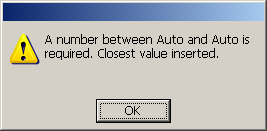Years ago, I used to hold a fancy-sounding rank in a very small publishing company. I was the Assistant Editor of Australian Commodore and Amiga Review (which later became just Australian Amiga Review), and Australian PC Review, and Australian Multimedia and Desktop Video.
Given that the editorial staff of those magazines consisted of (a) the editor and (b) me, my job title wasn't actually that big of a deal. But working in a teeny-tiny publishing company certainly does acquaint you very firmly with the strange economics of the paper publishing industry.
People keep banging on about how much better Web publishing is than paper publishing because of immediacy and feedback and editability and lack of arbitrary article size limits and blah blah blah. All of that is true, but Web publishing would be worth doing even if it didn't have any of those other advantages, especially compared with the magazine arm of paper publishing. That's because magazine publishers usually destroy more than half of what they print.
No, seriously. They do.
An ordinary newsstand magazine, you see, is printed at great expense in a huge and impressive building somewhere and then distributed, at similarly great expense, to all of the newsstands. The idea is to put, on each newsstand, the exact number of magazines that people are actually going to want to buy from that venue.
Except, of course, you have very close to no idea how many magazines a given newsstand is actually going to sell.
Your distribution company will have a vague idea, and they may even be kind enough to tell you what that idea is. But sale numbers vary widely all the time, because people who definitely want the magazine every week/month/whatever will probably subscribe (more about that in a moment). So newsstand sales are, usually, unpredictable.
The worst-case scenario for a publisher is that a particular newsstand has plenty of visitors who'd like to buy your magazine, but you didn't send enough there. Your mag sells out in the first day, and all subsequent customers get annoyed trying to find your product, then give up and, perhaps, forget about you altogether.
In order to avoid this, magazines make sure every newsstand receives an oversupply of magazines. Since you don't know with very much accuracy how many magazines any newsstand's going to need in any given month, though, you have to send them all a lot of magazines.
When I was involved in the business, this meant that if you sold more than half of the magazines you printed, a significant number of newsstands were likely to be running dry. I don't know whether it's gotten any better since. I doubt it.
Now, if you tell someone "if we're selling more than 50% of our print run, it's practically certain that we're not selling as many as we could" then they're likely to look at you and say "duh". But if you go on to explain to them that this means you need to print 20% more magazines in order to raise your sales by 7%, they'll probably back away slowly and try to find an exit.
Yet this is how the magazine publishing industry works.
Magazines that don't get sold are, usually, pulped - though small publishers invariably end up with a garage full of back issues, because they can't bear to destroy all of the old mags and they May Still Come In Handy.
Most old magazines are, of course, actually worth close to nothing. If you don't sell 'em in the month they were printed, you might as well make pinatas out of them.
(Every single magazine you print, though, counts towards your "circulation" figures. Remember that whenever you hear some mag or newspaper boasting about their circulation of 500,000 or whatever; unless they've got tons of subscribers, it's likely that at least half of those mags or papers never make it into the hands of a reader.)
This is why publishers are so very very eager to sell subscriptions, and why subscriptions can, often, actually be a very good deal. If a publisher's factored a 60% pulping rate into the price of their magazine, then they're likely to be happy to deeply discount that price for subscribers in return for 12 (or whatever) guaranteed sales.
Subscribers also give a publisher some other ways of making money.
The income from a subscriber is front-loaded, you see. It arrives in a lump at the beginning of the subscription. But the outgoings are evenly spread over the period of the subscription, which is likely to be at least a year.
So if your publishing business is on the way up, a subscriber is a neat little tax dodge.
You get the income at the beginning and pay tax on it in that financial year, but the year after (when you're presumably making more money, and thus likely to be paying more tax per dollar of income) you can still book your subscribers as liabilities.
One of the staple tricks in "creative accounting" is shifting income and outgoings around so that, as far as the tax man's concerned, you're making money whenever it'll do the least harm and paying it out whenever it'll give the most benefit. Magazine subscriptions practically force a publisher to do that.
Subscribers are also great if your publishing business is on the way out. You still get the money at the outset - which, if you're teetering on the brink, is a very good thing. But then, if you decide to give up on the whole enterprise, you can just stiff your subscribers for however many issues remain outstanding. It's a vanishing liability.
Publishing houses that retire a magazine but have a stable of others normally give their subscribers the chance to roll their remaining subs over into some other magazine. Or they may even - gasp! - offer a REFUND.
But when a small publisher folds, they can just take the (remaining) money and run, secure in the knowledge that there's not likely to be a class action lawsuit from Disgruntled Subscribers To Very-Fluffy-Rabbit-Fancier Magazine Who Just Signed Up For A 48-Issue Sub, God Damn It.
And that, gentle reader, is exactly what the company I worked for did.
If we hadn't, I doubt I would have ended up being stiffed, myself, for a mere four digits worth of wages.

